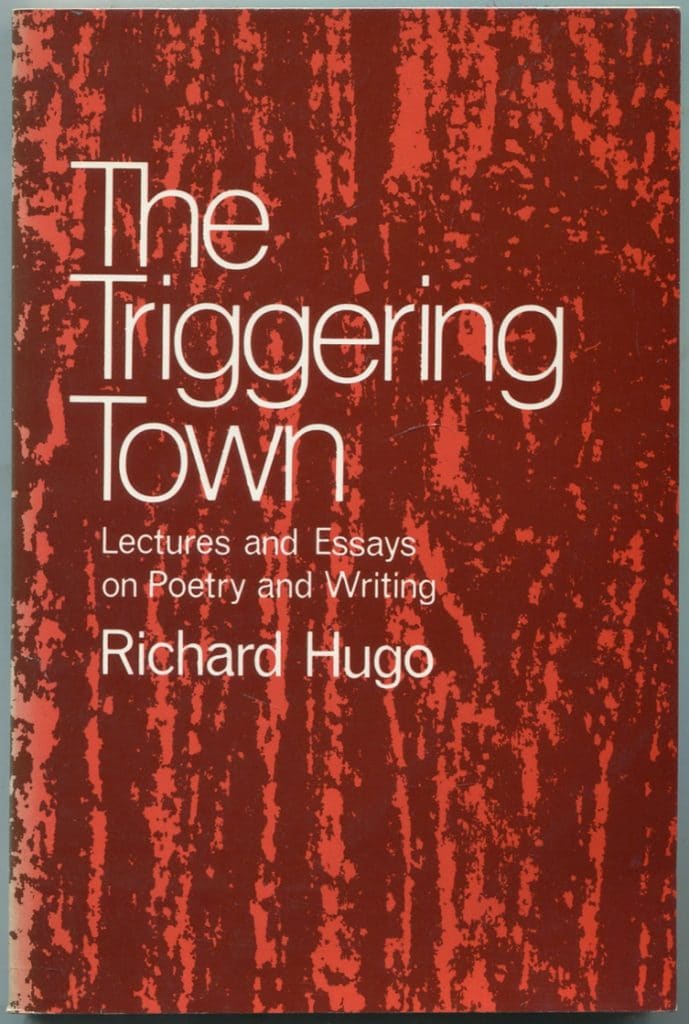We’re thrilled to introduce the 2022 Oregon Literary Fellowship recipients with individual features on our blog! Out-of-state judges spent several months evaluating the 400+ applications we received, and selected nine writers and two publishers to receive grants of $3,500 each. Literary Arts also awarded two Oregon Literary Career Fellowships of $10,000 each. The 2023 OLF applications will open in May 2022. The deadline to apply is Friday, August 5, 2022.

Tony Ardizzone’s books include The Whale Chaser, In the Garden of Papa Santuzzu, and The Arab’s Ox: Stories of Morocco. His novel In Bruno’s Shadow, set in Rome and Croatia, will be published by Guernica Editions in Spring 2023 as part of their Guernica World Editions series.
Category: Laurell Swails and Donald Monroe Memorial Fellowship
Pronouns: He/him
Q&A with Literary Arts
Who are some writers you look up to or who move you to write?
I look up to international authors as well as writers whose work centers on identity and place. Right now I’m reading a novel by the Turkish writer Elif Shafak, and a book of poetry, Perfect Black, by the Affrilachian novelist Crystal Wilkinson. I recently enjoyed Hervé Le Tellier’s The Anomaly as well as books by David Mitchell, Ottessa Moshfegh, Frank Lentricchia, and Min Jin Lee.

What are your sources of inspiration? Of joy?
When I search for inspiration, I open a journal and take notes. I normally begin with description of setting. I do my best to describe what I see, what I hear, what I smell. My hope is that my observations will trigger something within me that will lead to something else (a narrative, a story). Richard Hugo describes the process in The Triggering Town, his book on poetics.
My inspirations of joy are much the same as everyone’s. Family, friends, dogs, travel, the ocean, coffee, a good morning of writing.
How would you describe your creative process?
I work in terms of drafts. Few rules in the first draft, which I single space and write as quickly as I can. Later on I do what I can to develop and edit, then develop and edit again. When I sense I can do no more, I polish.
In truth it’s easier said than done. In a first draft I sometimes find myself going back and forth over a particular sentence or scene, rewriting and polishing until it shines, feeling that I can’t go forward until I do. So I indulge myself. Then back to my general rules – move forward, don’t look back. If and when I’m feeling stuck I write for a while by hand or typewriter.
Oh, and I always try to remember to park downhill. Which means I try to leave myself something relatively easy to start with when I return to the desk the next day. I’ll leave a sentence unfinished and then jot down a few notes of where the sentence and the next scene might go. Kickstarts the following morning.
What is most exciting about receiving a fellowship?
The fellowship helps me to feel that I’m now part of the larger community of Oregon writers, a few whom I’ve met and many more whom I’ve read.
What are you currently working on?
I’m currently going through the copy edits on my novel In Bruno’s Shadow, which Guernica Editions will publish early next year.
As for my new work, I don’t like to discuss work in progress. When I was in graduate school, the fiction writers would gather in a bar after workshop and drink beer and tell stories (as well as lies), and eventually some would talk about the stories they were working on. There were at least a couple of times when the version they told in the bar was better than the one we saw later on the page. I think talking about a work in progress takes away some of its energy. Hemingway said talking about a work before it’s done strips it of whatever it is butterflies have on their wings.
What has kept you writing through the pandemic? Has your process changed? Has the content changed?
At least during the first few months of the pandemic, I did very little writing. Then after a while I put myself back into harness and sat down and got back to work. Neither my process nor my content changed. I did all I could not to let the pandemic affect my work or my aesthetic.
What advice do you have for future applicants?
Continue writing and improving your craft regardless of whether or not you were awarded a fellowship. Put in your hours at the desk, or wherever it is that you work, and work regularly. When you’re not writing, read. Devote at least as many hours to reading as you spend writing. Read widely, across all genres. Go to plays. Turn off screens.
Any book recommendations?
- Salvage the Bones, Jesmyn Ward
- 10 Minutes 38 Seconds in This Strange World, Elif Shafak
- Obasan, Joy Kogawa
- The Imperfectionists, Thomas Rachman
- The House of Broken Angels, Luis Alberto Urrea
- The Middleman and Other Stories, Bharati Mukherjee
- Collected Stories, Gabriel García Márquez
- The Known World, Edward P. Jones

Excerpt from The Arab’s Ox
In a ditch alongside the highway between Casablanca and Rabat lies the Arab’s ox. Even in death the blue-black beast appears huge. Its open eye stares unfocused at the sky, streaked tangerine from the sun setting over the Atlantic. The ox’s left foreleg, snowy white from hoof to knee, lies curled nearly to the swell of its stomach. The dying light lends its sallow horn a yellow cast. By the time Larabi—the Arab—finds his beast, the eye will be entirely milked over and covered with flies buzzing with greedy madness. Already the flies have settled on the blood clotted around the nostrils, lips, the black tongue bulging from the mouth. Other flies cling to the coarse hairs on the muzzle and the thinner lashes surrounding the eye, waiting their chance to bite something choice. Three egrets, white plumes unruffled in the still air, pick at a gash in the animal’s side where its sweet blood has congealed, where a jagged spike of rib has torn through the skin. Beneath the skin the organs have bloated from the day’s heat.
Judge’s Comments
“Generous and evocative, Tony Ardizzone’s story, “The Arab’s Ox,” not only transports his readers to a faraway land but helps them inhabit—to richly and fully inhabit—an array of characters, women as well as men, native-born and foreign. A tourist bus strikes an ox in the road. Using a Rashomon approach, the various onlookers react to the scene. By the end, we have experienced the anguish and intrigue of each of them. A nuanced narrative and a lush read!”
– David Wright


